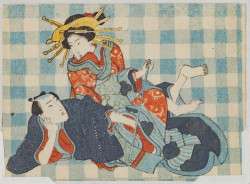
Originally published on metropolis.co.jp on June 2009
According to political pundits, sometime soon—either in July or August, and certainly before September 6—we are going to be treated to the spectacle of a Japanese general election.
As most people know, the Japanese parliamentary system is divided into two houses—the House of Representatives, the more powerful lower chamber, and the House of Councilors, an upper chamber, similar to Britain’s House of Lords. While half the members of the House of Councilors stand for reelection every three years, the House of Representatives has to stand en masse within four years of the previous election. Here in Saitama, where I live, I was lucky enough to have a preview of the Japanese democratic process in action with the May mayoral elections for Saitama City.
Since it was founded by the merger in 2001 of Urawa, Omiya, and Yono cities, Saitama had been headed by the former mayor of Urawa, Soichi Aikawa. Despite his long tenure in office and voters’ (over) familiarity with him, the incumbent decided to spruce up his reelection bid with a snazzy if somewhat mystifying English slogan: “Let’s Begin Together!” Seeing as Aikawa spent eight years at the top in Saitama and ten years previously as chief of Urawa, this sounded more like a sorry admission of long-term administrative inaction than the start of a new political dawn.
Another key point about the election was that almost every candidate—with the notable exception of the Communist Party’s—had some type of connection with the Liberal Democratic Party (LDP), Japan’s dominant faction in the postwar period. Aikawa was sponsored by the LDP, but even his main challenger, Hayato Shimizu of the Democratic Party of Japan (DPJ), had once been a member of the party. This is a complete mirror image of the top leadership of the DPJ, several of whom are defectors from the LDP.
While Shimizu was merely an LDP old boy, some of the other candidates opposing the LDP-backed Aikawa also had strong connections with the party, as well as its tacit support. These included Fukuyo Nakamori, the only female in the contest and already an LDP Diet member. Because of this ideological interchangeability, Nakamori ran a sexist, isn’t-it-time-we-had-a-woman campaign that was devoid of significant issues or policy differences. Another LDP-backed candidate was apparently a disgruntled former Aikawa underling, who had got tired of waiting for the boss to step down and let him have a crack at the top job.
Yet another candidate, who may or may not have had connections with the LDP, mainly campaigned on the fact that he was a doctor and therefore licensed to take the pulse of voters in a medical as well as a political sense. Dr. Sakabe drove home this salient point by prowling the hustings attired in a white coat and dangling his stethoscope, which made me wonder when the other “men in white coats” were going to come and take him away.
So, what did the voters make of this political circus? It’s hard to say, but I have a feeling that the example of my wife is pretty typical. When election Sunday came around, I gently reminded her that it was time to go and do her democratic duty.
“Mmmh? Is it today?” she asked, and promptly popped out to vote with all the sense of occasion of a visit to the nearest vending machine.
When she returned half an hour later, I asked her whether she had cast her all-important ballot.
“Umm… yes,” she answered, somewhat absent-mindedly, as she busied herself with preparing lunch.
“So, who did you vote for?”
“Well… I don’t really remember.”
“What party was it?” I pressed.
“I don’t think it said.”
“What about the candidate’s name?”
“Mmm… I forget, because I don’t know him.”
Later, by a sort of Twenty Questions process that included quizzes on gender, age, amount of hair, and whether or not the candidate was wearing a doctor’s uniform, we worked out that she had in fact successfully voted for Hayato Shimizu, the winning candidate. With the LDP vote split by gender politics and internal squabbles, the DPJ newcomer, an ex-LDP man himself, with a not-dissimilar political outlook, had come through the middle to win.
“So why did you vote for him?” I finally queried.
“Someone said he was the same age as Obama,” she replied vaguely. “So I thought he might do something instead of that old guy.”








